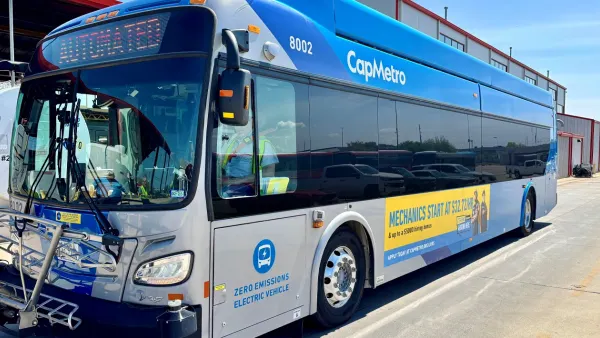UPDATED, Dec. 19, 2018: The San Francisco Board of Supervisors voted last week to eliminate the city's parking mandates for new housing development, making San Francisco the latest city — and the largest — to enact such a policy.
San Francisco joins other major cities looking to increase walkability and decrease car dependency. Streetsblog USA reports that, just last week, Minneapolis City Council approved a move to eliminate off-street parking minimums in part of the Minneapolis 2040 plan. Buffalo, NY also passed similar legislation in early 2017.
Dive Brief:
- San Francisco is set to consider a bill that would eliminate minimum parking requirements for new housing developments, which would make it the first big city to enact such a policy, reports the San Francisco Examiner.
- Legislation from Supervisor Jane Kim would strip language from the city’s planning code that developers include a certain number of parking spaces for new construction.
- The requirements had largely been sidestepped by policies like transit-first development or the installation of bike parking. "This in many ways feels pro forma," Kim told the San Francisco Examiner. "But still is a very important policy step."
Dive Insight:
The idea of cutting parking requirements has been catching on in other cities, a response to the car-focused policies of previous decades and a way to encourage more sustainable development. Smaller cities around the country are considering relaxing parking requirements, according to a database compiled by the nonprofit Strong Towns. Houston is considering lifting space requirements in two neighborhoods, and Seattle has relaxed off-street requirements for residential developments.
The proposals have been pitched as a sustainability win, since they could help encourage people to not rely on cars and could free up more land for green space (the proposal also comes after a report from the California Air Resources Board found that single-occupancy vehicles were driving greenhouse gas emissions in the state). Advocates have also pitched it as a way to reduce construction costs and add more housing.
Still, some cities have stuck stubbornly to parking requirements, with Los Angeles as a prime example. Earlier this month, architecture firm Woods Bagot unveiled its "MORE LA initiative," which explores how Los Angeles would change if its existing parking spaces were converted into land for other use. Converting 50% of the city’s existing parking structures could create housing for 750,000 new people, the firm found.
“When block fronts are taken up with parking, or even auto-related uses, those do not tend to be pedestrian-friendly blocks. Nobody wants to walk by a parking lot,” architect James Sanders, who consults for Woods Bagot, told Smart Cities Dive last month. “They don't have any of the urban energy. In the middle of a city that relies on centers of energy and focus and destinations, and also relies on, to some degree, a pedestrian experience, they are killers.”










